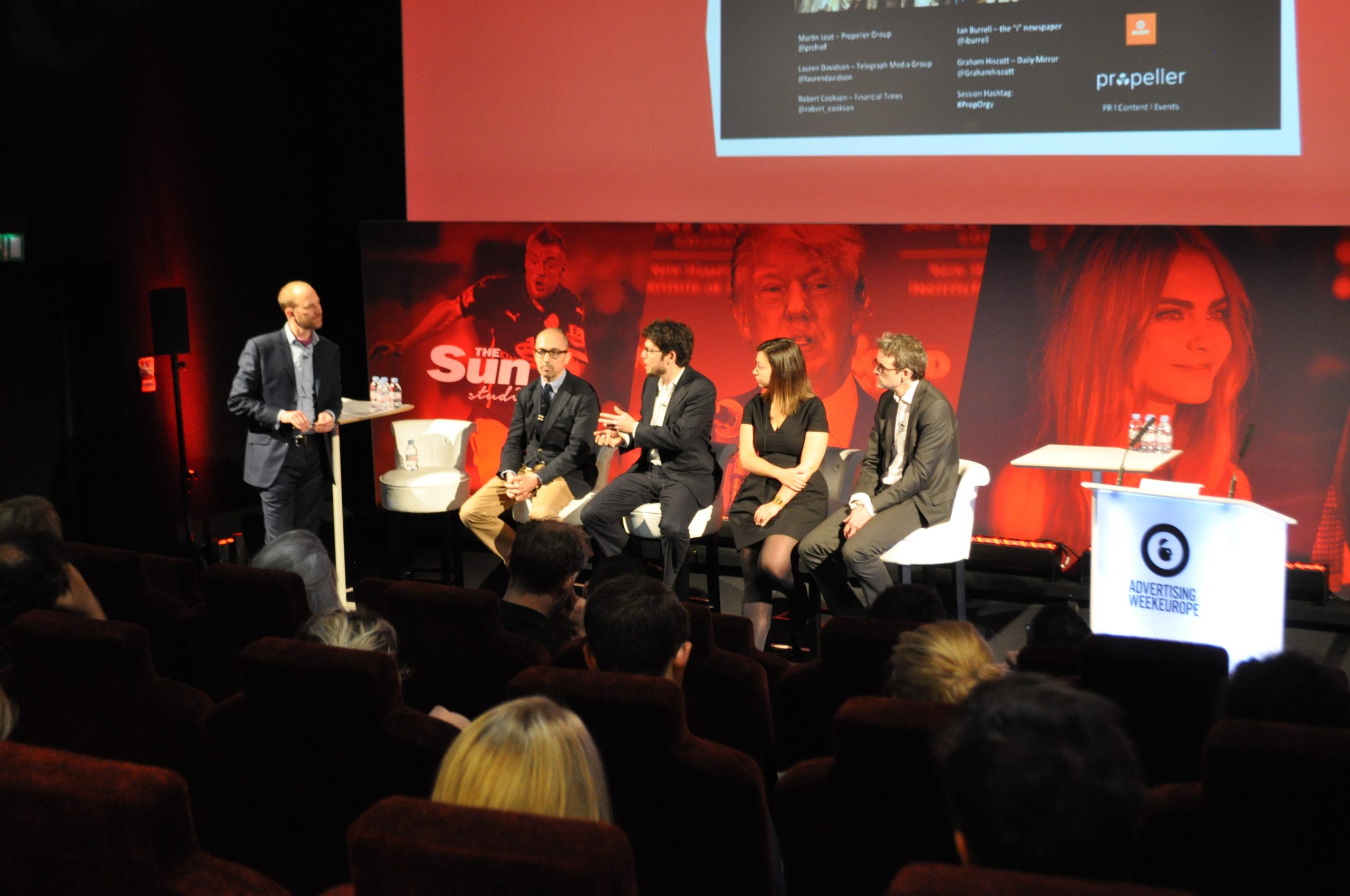
Watch the panel session here.
Journalists may dream of whistle-blowers, leaked papers and winning press awards but many of their articles are based on stories supplied by “imaginative” PRs who can pull in strong ideas and angles from their clients.
Propeller’s ‘Wallflowers At The Orgy’ panel at Ad Week Europe turned the spotlight on business and media journalists to explore the changing nature of their role, their attitudes to ‘native advertising’ and how they interact with PR.
Ian Burrell, media correspondent for the “i” newspaper, said: “News media is dependent on PR in a way that was unimaginable previously. The reality, certainly for me, is that we are hugely dependent for access on PRs and their imagination in identifying stories from their organisations and the public understands that.”
Graham Hiscott, Business Editor of the Daily Mirror agreed that marketing-led stories had been brought to his attention that were relevant and important to his readership.
Tackling the charge put by chairman and Propeller founder Martin Loat that journalists ‘spin’ a story to a certain agenda, Cookson said “I definitely don’t think we have a spin … we try to present the facts in an objective way and having a clear angle is key … there is nothing more boring than a mish-mash of information with no clear guiding narrative or point to it.”
Burrell added: “You quite often see stories that are trying to pick up on trends where they have sifted the evidence a little bit to pull out things that suit them and things that are inconvenient get less profile.”
The panel agreed that their job was to pull out the strongest angle and Hiscott was unapologetic in saying that Mirror stories reflected a specific worldview and he looked to “generate an emotion” with a story.
Lauren Davidson, Business Reporter, Telegraph Media Group, said: “Your job is to put news in context of what story is and hone in on what they need to know about this company. The Telegraph is a pro-business paper but we will still do the story on chief executives getting paid too much or shareholder revolts, if that’s what the story is.”
Regarding the rise of native advertising, the panel said it would be rare for a journalist to contribute to paid-for content and be by-lined, as this would affect the credibility of their work and the parent news brand. However, the existence of native advertising itself was accepted as a positive contribution to revenue and less annoying than a pop-up ad online, as long as it was clearly marked as such.
Advice from the panel to PRs pitching included explaining at the start of a call what the company you represent actually does and making sure you can answer basic queries. Davidson said there were no more frustrating words to here than “I will get right back to you” concerning the simplest of questions. Pitching in a story as a ‘UK online exclusive’ is also going to result in a poor response.